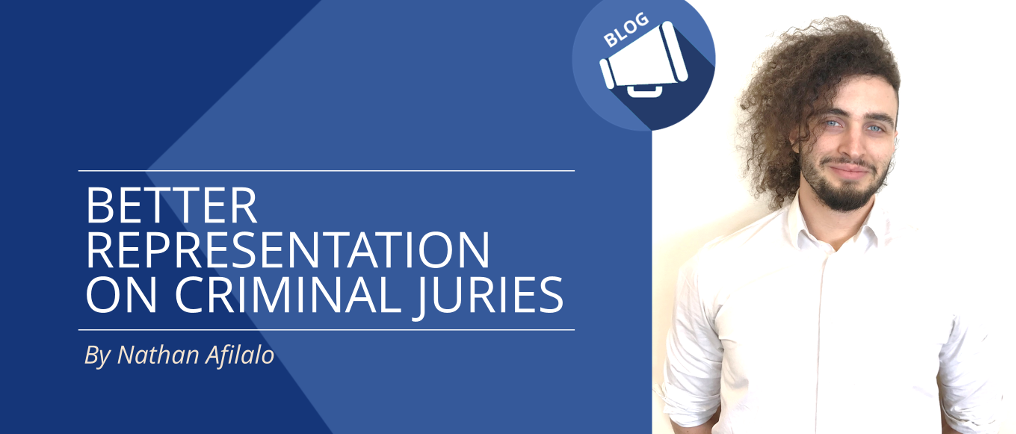Better Representation on Criminal Juries

Canada’s jury selection process does not have a storied history. Both the federal and provincial processes have been found wanting, particularly as they concern the representation of Indigenous People and racialized minorities on juries for criminal trials. Public scrutiny has most recently turned its eyes upon peremptory challenges. Provided for in s.634 of the Criminal Code, peremptory challenges allow the accused and prosecution to exclude a given number of jurors from serving on their case. Calls to eliminate peremptory challenges due to their adverse impact on the representation of Indigenous People and racialized groups date back to the Law Reform Commission of Canada in 1982. To date, the 2013 Report of the Independent review Conducted by the Honourable Frank Iacobucci, First Nations Representation on Juries, and the 2018 Debewewin Jury Review Implementation Committee’s final report discuss the importance of reform most extensively.
Following the acquittal of Gerald Stanley on February 9th, 2018 on the charge of second-degree murder of Colten Boushie and the composition of the jury that gave the verdict, the Federal government only on March 29th of 2018 introduced a law that would eliminate peremptory challenges: Bill C-75, An Act to amend the Criminal Code, the Youth Criminal Justice Act and other Acts and to make consequential amendments to other Acts.
Many criminal defence lawyers are wary of Bill C-75’s reforms to jury selection. Their reservations are grounded in the same concerns as those who call for the elimination of peremptory challenges: systemic discrimination. A position paper released by the Criminal Lawyer’s Association (CLA) on Bill C-75 states that problems with representation on juries are not caused by peremptory challenges. Rather, the CLA holds that “peremptory challenges are often used in an attempt to ensure there are racialized or Indigenous peoples sitting on juries, particularly when the accused is racialized or Indigenous.” On this account change is not needed in the in-court selection process but in the provincial out-of-court jury selection process responsible for creating the pool from which trial juries are composed. The CLA and many criminal defence lawyers maintain that the lack of diversity in the jury pools is the cause for the paucity of Indigenous Peoples and racialized minorities serving on juries.
Diversity on the jury was the very issue at the heart of the 2015 Supreme Court decision R v Kokopenace. The majority of the court held that diversity in the jury roll is protected by the right to a representative jury under ss.11(d) and (f) of the Canadian Charter. Representation under s.11(d) and (f) is a right to a process, not to the particular composition of a jury. The right is not violated so long as the provinces and territories make reasonable efforts to ensure that the names comprising the jury pool are (1) drawn at random (2) from a large cross-section of society, and (3) sent notices. Despite the case, the process it enshrines still produces unsatisfactory jury compositions.
Because representation on juries remains such an issue, the Canadian Institute for the Administration of Justice (CIAJ) has prepared a preliminary report on jury representation in Canada: “Systemic Barriers and Biases in the Conscience of the Community.” The report will be used as a reference tool for CIAJ’s Provincial Roundtables on Jury Representation across Canada and the National Symposium that will follow in the Fall of 2019.
The report focuses on the out-of-court jury selection process with a comparison of the selection processes of the Canadian provinces and territories. Notably, the report finds that across jurisdictions the jury selection process has a systemic bias favouring financially stable urban homeowners. Growing from this foundational systemic barrier are further walls created by the interlocking issues of exclusion based on criminal records, language requirements, selection procedures that target on-reserve residents, discretion of court officials, conscious and unconscious racial bias, and a lack of trust in the criminal justice system.
CIAJ’s Provincial Roundtables on Jury Representation will take place in Manitoba (April 6, 2019), British Columbia (June 1, 2019), Alberta, Ontario, Quebec and Atlantic Canada respectively (specific dates to come). Law students studying or living in these provinces are invited to participate in the organization of the discussions.

